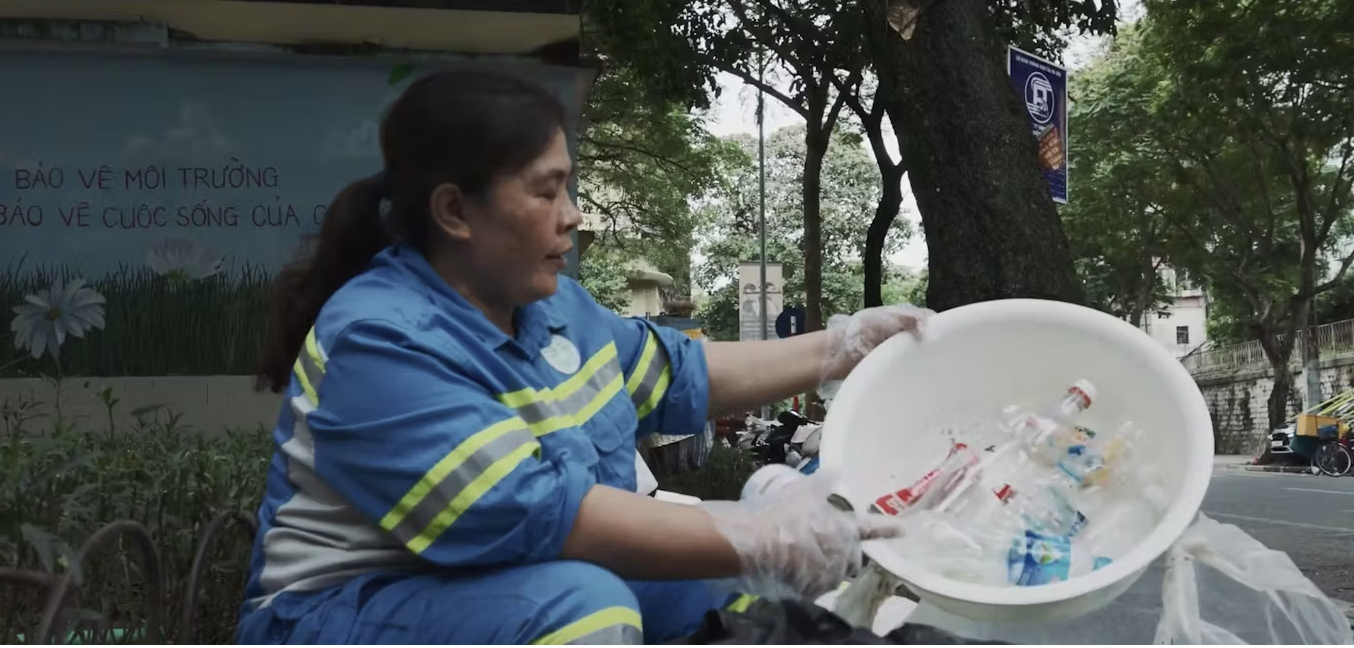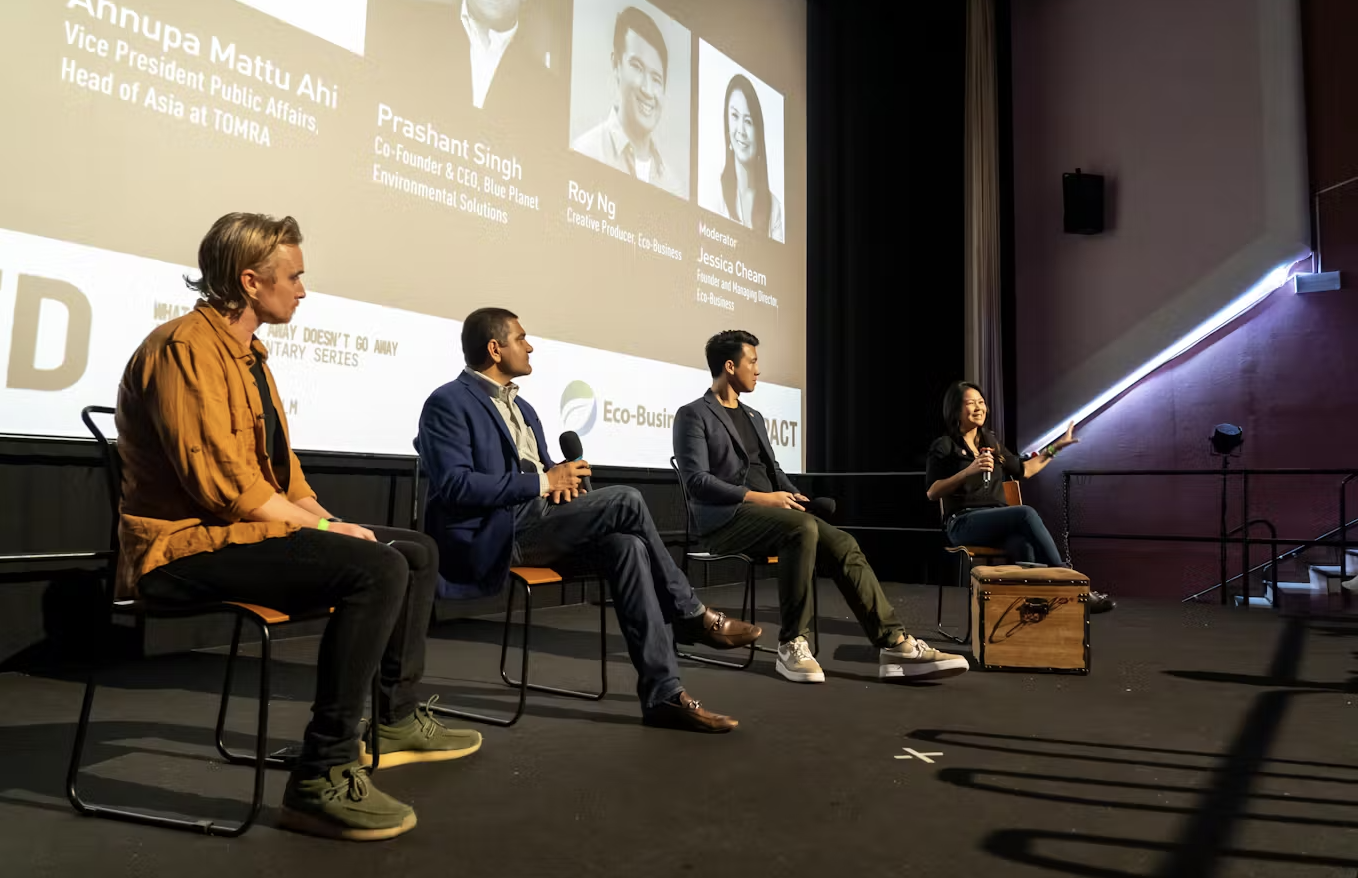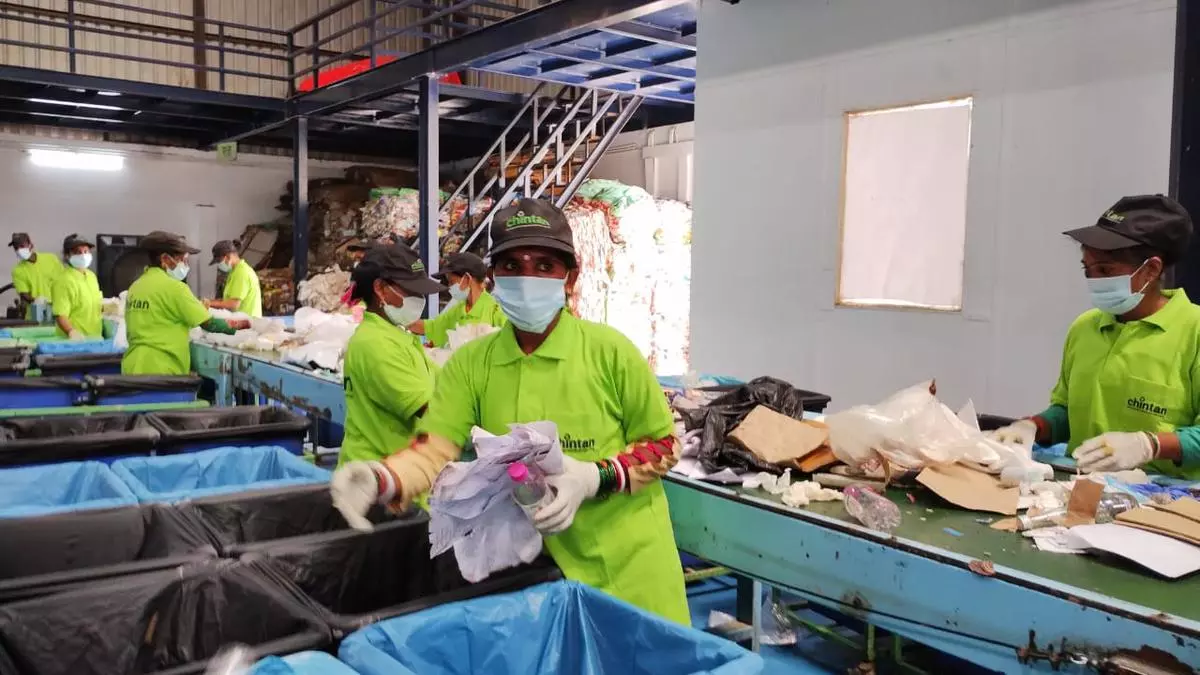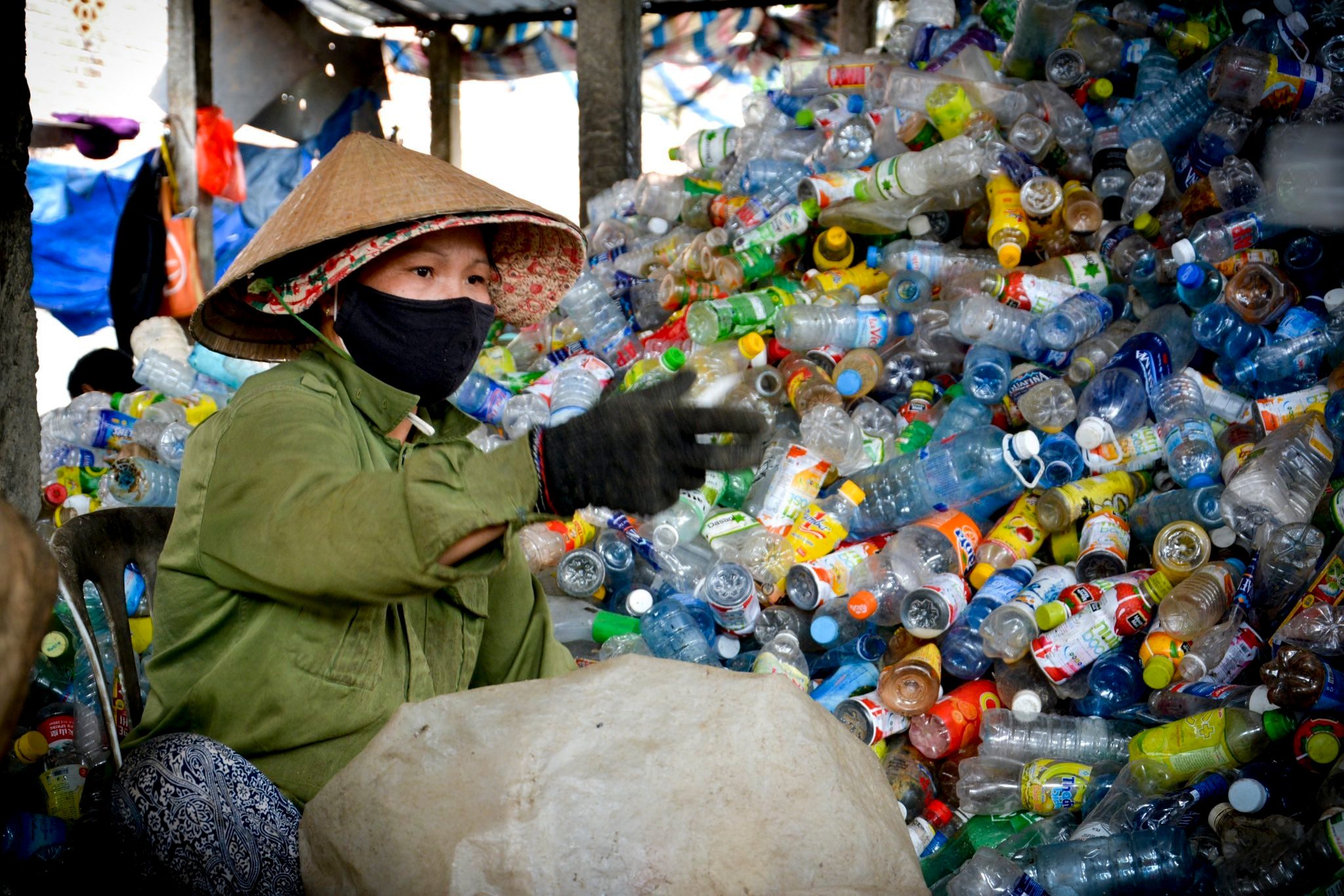
Countries in Asia have begun mandating that companies must pay for managing the waste they produce through implementing Extended Producer Responsibility (EPR) laws.
In 2022, Vietnam – which ranks fourth globally in volume of plastic waste – became the first Southeast Asian nation to adopt EPR rules under a revised Environmental Protection Law. However, it remains unclear what the role of the informal waste sector will be under the new EPR laws.
Vietnam’s army of informal waste workers – who are predominantly women – process more than 90 percent of the country’s recyclable plastic waste. Yet, they tend to be paid less than formal workers and lack job security and access to other job-related benefits.
As depicted in a new documentary “Wasted”, which investigates Asia’s waste crisis across India, Singapore, South Korea, and Vietnam, workers in informal recycling sites still manually sort much of the waste by hand and are often subject to unsafe and unsanitary working conditions .
At the film premiere on Saturday held at The Projector, an independent cinema in Singapore, one audience member asked if the informal sector should be phased out as EPR regulations gradually kick in across Asia.

The documentary also looks at the undesirable working conditions in the formal waste sector. It followed 47-year-old Cao Thi Luot, a waste worker who is part of the estimated 16,000-strong formal waste workforce in Vietnam’s major cities, who goes about Ho Chi Minh collecting and segregating the daily trash that piles up on the streets by hand.
“Yesterday I was splashed with garbage and it smelled really bad,” she recounted in the documentary.
“I think you have to love your job, then you can continue to work. You have to say, ‘The job finds me, not me looking for the job’. No one likes this job,” said Luot, who has been a waste worker for the past eight years.

Panel speakers said that in other parts of Asia, there is still a lack of EPR laws, and change has to start with legislation to ensure polluters pay.
Within Southeast Asia, the Philippines is the only other country that has enacted polluter-pays regulations for packaging waste. Indonesia has a voluntary EPR scheme in place, while Thailand has pledged to recycle 100 percent of its waste by 2027 and is in the process of planning its EPR framework. Meanwhile, Singapore is slated to roll out its EPR scheme in 2025, which was first launched nearly two decades ago.
While businesses have managed to get away without having to account for their externalities in the last century, it will become increasingly harder to escape responsibility in an age of hyper-transparency, as technology gets more sophisticated in tracking their footprint, said Jessica Cheam, founder and managing director of Eco-Business.
“A lot of organizations today say: ‘Oh, sustainability is so expensive.’ No, actually it’s because the true costs of doing business are now being reflected in their balance sheets,” she said. “In the past, it used to be hidden or businesses did not have to account for it.”
Fraser Morton, the executive producer at Eco-Business, who spent the last few months on the ground filming the documentary, said that the solution comes down to “very simple choices”, but the government will be needed.
“The key to unlocking a lot of these problems is EPR laws. These sweeping legislations can actually happen very quickly,” he said.
Rather than blaming the region’s waste crisis on consumers, the biggest polluters like Coca-Cola, Unilever, and Starbucks – all of whom declined to be interviewed for the documentary – need to be held accountable for the true costs of their businesses through such legislations, said Morton.
“Too many environmental films point fingers at consumers, and that is nonsense. We need to be holding polluters responsible for the products they are putting into the market that we are consuming,” he said.“
















